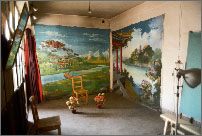Last week I noticed my two year old son staring out the window with his face pressed against the glass. I came over and he pointed out to the curb. "Tree," he said.
I had worried about this. The night before we had undecorated the Christmas tree while he was sleeping. Now it was 6:30 in the morning and it was the first thing he noticed.
He had been pretty excited about the tree. The night we put it up he kept disappearing and reappearing from the living room as we arranged the lights. We thought he wasn't interested and was getting cars or something. He was actually hauling his pillows and blankets into the room so he could go to sleep in view of the tree. For the month it was up, turning on the Christmas lights was the first order of the day.
And now the tree was out on the street with the garbage. He insisted on an inspection, so we went outside. There it was on the curb wet from rain and with a single ornament dangling from it's lower branch. He immediately ran over and began a valiant attempt to drag the 7 foot tree back to the house. He's less than 3 feet tall. I explained the tree had spent a long time with us making us happy but now it was time for it to go away to be with the other trees. I pointed out the many trees scattered on the curb up and down the block. He paused, considered the explanation, and solemnly waved goodbye to the tree. We removed the ornament. Then, grabbing my hand he led me down the street and with real gravitas said goodbye to each and every tree.
Other than my own dim memories I knew nothing of the world of toddlers until I had one of my own, but I've come to believe that our early years are the ones in which we are the truest versions of ourselves. In those years we are without the accumulated layers of knowledge, the cruft of life, that gives our world boundaries. The truth was I was sad too and at that moment it felt unfair we couldn't keep trees in the house all year long. I almost believed my own white lie about the trees returning to the forest. Comforting. And of course that's how it starts, one day you realize the trees are just going to mulched and sent to the dump and you wonder why your father lied to you. You don't realize until much later that this is the lie he had heard from his father.
Afterwards we returned home and my son searched through the house until he found his Christmas book featuring a tree. Again, he said "bye bye," and then, satisfied, he threw the book aside and bounded upstairs ready for the next thing.
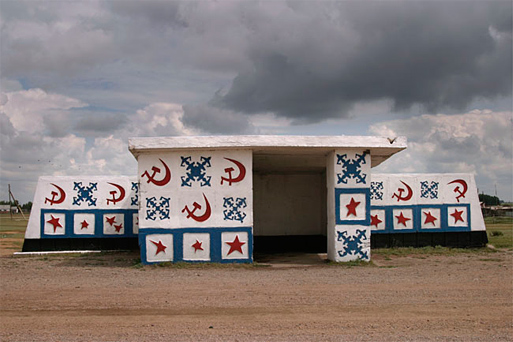
The online magazine Polar Inertia is featuring a set of images of wonderful Soviet era bus stops. Good stuff. You used to find similar bus stops (and bus stations) in rural china featuring exuberant off kilter designs. Sadly most have been modernized out of existence.
letter found 6/23/99, original date unknown:
I ask myself, "Where is she right this second?"
I tell myself, "She is on her bed. It is dark. She's asleep."
I ask myself, "Which side of the bed, left or right?"
I answer, "Hmmm. Good question."
I think, "I can imagine her breathing."
I ask myself, "If I were there would she be facing me or would I be holding her?"
I tell myself, "It doesn't matter, at least you would be there."
I ask myself, "Why do you torture yourself this way?"
I tell myself, "It's like a wave crashing over an ant. The ant has no say in the matter."
I think to myself, "The cat is there. The cat is on the bed. She is not alone, she is with the cat."
I ask myself, "Why do cats have all the luck?"
I think, "Damn cat."
I say out loud, "I hate cats."
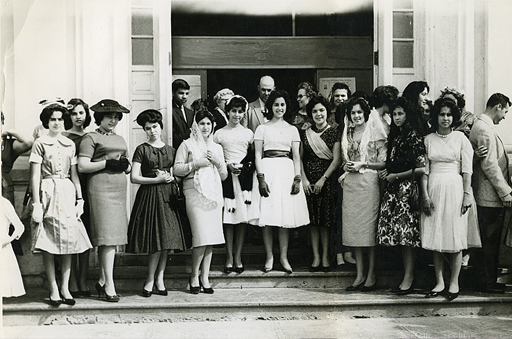
This is from the church service before the quinceañera. Should be about 1959 in Monterrey.
On Henry and Pacific
man in a pork pie hat:: There are goombas and there are goombas, and this guy is a goomba. He's a steal your car, hit you with a tire iron, acid in the face kind of goomba .
young greasy haired guy: Stop. He's practically retarted. I see him putting out milk to the stray cats and meowing. [Meows] That guy?
man in a pork pie hat:: You're so smart. What do you think happened to Michael's thumbs?
. . . .
On Dean Street
kid: Why can't we keep the Christmas tree all year?
mom: Because we have to leave them out for the poor people.
kid: Nobody wants a used tree.
mom: See you don't understand what it is to be poor. If you were really poor, even a used tree would seem nice.
. . . . .
on State Street
4 or 5 year old boy (to himself): fruit rolls are not candy. No. No. No.
. . . . .
on 23rd Street
street vendor selling toy cars: One for five dollars, Two for six.
customer: How much for three?
street vendor: Nine dollars.
customer: But that doesn't make any sense.
street vendor: Looks like you'll have to buy 4 for ten.
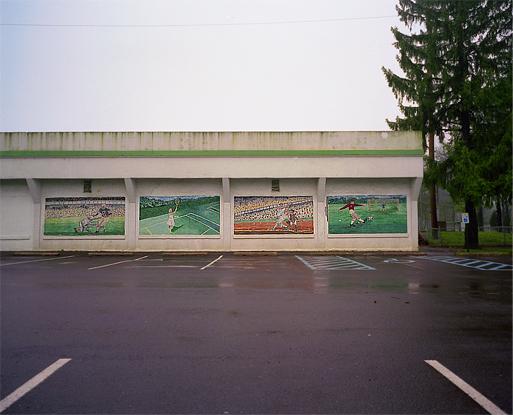
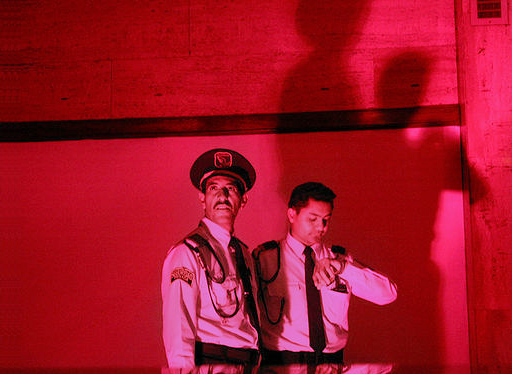
Mark Powell is a photographer who never fails to delight, intrigue, and challenge his audience (he also happens to be a great guy). His book of photos from Mexico City and Detroit titled V.I.P just came out and is reviewed by Michael David Murphy who also provides a link to purchase the book. Note that right now the only place to buy the book is via a Mexican online bookstore so you need to be able to read Spanish to order (this said the store is reliable). I'll update with links to American stores when the book becomes available here.
Mark's Alor Powell
Update: Mark just put up a mini book site with more info.
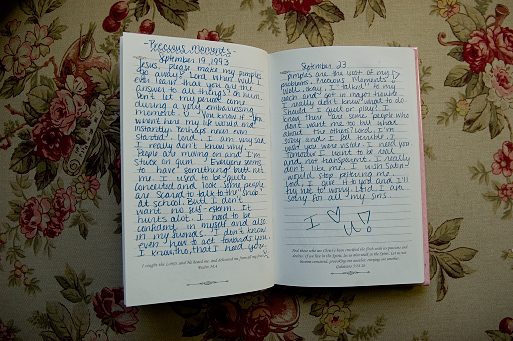
I found this diary in Philadelphia home of a family member who shall remain anonymous (her original spelling is preserved):
Precious Moments
September 19, 1993
Jesus, please make my pimples go away! Lord when will I ever learn that you are the answer to all things? Oh Hum. Don't let my period come during a very embarressing moment. :) You know if You weren't here my life would end instantly. Perhaps never even started. Lord. I am very sad. I really don't know why. People are moving on and I'm stuck on gum. Everyone seems to have something butt not me. I used to be quite conceited and look. Some people are scared to talk to the "snob" at school. Butt I don't want lo self esteem. It hurts alot. I need to be confident in myself and also in my friends. I don't know even how to act towards you. I know, tho, that I need you.
September 23
pimples are the least of my problems. Precious Moments ! Well, okay, I "talked" to my coach and got in major trouble. I really don't know what to do. Should I quit or play? I know there are some people who don't want me too butt what about the others? Lord, I'm sorry and I feel terrible. I wish you were visible. I need you. Tomorrow I want to be real and not transparent. I really don't like me. I wish Satan would stop pestering me. Lord, I give it to you and I'll try not to worry. Lord, I am sorry for all my sins.
I [heart] u!
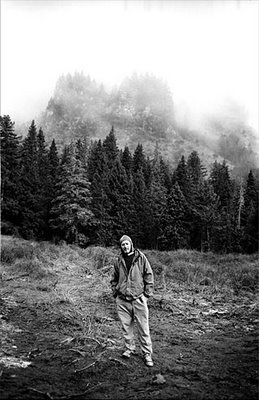
By the time I finish writing this post I'll be 40. Many friends have been sent into mini panics by this particular milestone (one friend who still has a few months to go before his 40th keeps making gloomy pronouncements like, "the first half of your life it is all about possibility and doing stuff, and then you just start losing things..." But then again he's been having midlife crisis after midlife crisis since turning 20), but this is not my style. It is true that by 40 you become aware of your own mortality. Most of us by 40 have lost grandparents and people in our parents generation are dying at an increasingly alarming rate. But this sadness is countered by the delight in all the children being born. At 40 virtually all of my long time friends are married and busy making families. Two of my friends have just had their 5th kids. (They have their own basketball teams!) And children are the enemies of complacency. I wish sometimes I had met my wife earlier and that we had had kids earlier. I was 12 when my dad turned 40. 17 when my my mom turned 40, she died only 5 years later.
My single friends my age are generally solo by choice, the few who are single but not by choice often voice regrets about their lives. This last category is populated almost exclusively with friends who had one great love who got away. Talking to them always makes me thankful I met my great love when I did, at an age when I could appreciate what I would be missing if I were to lose her.
As a teenager I attended a family friend's 40th birthdy party and remember thinking of the guy as ancient, but I don't feel any older than I did back then. I'm better at virtually everything today and I've lost most of the self consciousness which plagued my young life. Also and perhaps most importantly I've finally reached an age where I can wear hats and only look like a semi-jackass.
The truth is I'll wake up in a few hours and feel pretty much as I did yesterday. My grandfather said he didn't begin to feel old until he turned 87. I hope to follow in his footsteps.
related: 39, 38
One of my many hats is college interviewer for my alma mater. Every year I meet with nervous high school students trying to impress. And generally they do with curiosity and enthusiasm and great promise. But one trend I’ve noticed in the last few years amongst the recruits is the tendency to look at the internet as a complete reference to all things. This disturbs me. One unsmiling young man told me he no longer owned a single book. "Everything I need is online. Why be tied down?" he asked unblinking with complete seriousness. A girl looking for a career in politics happily informed me she had never read a physical newspaper. "I read 10 newspapers on the web, why should I get my hands dirty?" Another student, as she was about to leave, asked if I would prefer a thank you note by snail mail or email. "You haven’t hand written many letters have you?" I asked. She blushed and giggled, "Well actually I don’t think I’ve ever written one.... well, maybe except to my grandmother and that was a looong time ago."
I’ve always been one to embrace new technology. Growing up I was invariably the first kid with a computer, with a printer, with a modem etc. I’ve had email in one form or another since the 80’s, but I also appreciate the almost sensual pleasure of hand written letters, of words on paper, of books and bookstores and spending a day walking around without a cellphone unreachable by anyone. While I read plenty of newspapers online, none is a substitute for my morning New York Times. Online we tend to read the articles already of interest. RSS feeds give us an even narrower more filtered view, but with a paper spread out before us, we are much more likely to browse and read about that volcano in Guatemala, or the new species of lizard they just discovered in the Borneo or of an artist we’ve never heard of. What happens when everyone only reads narrowcast filtered stories catered to their specific interests? And what fun is it to read online anyway? Is there a better way for a couple to spend a lazy rainy weekend than with the Sunday paper spread all over the bed, reading side by side over one another’s shoulders?
We are probably the last generation who will have the pleasure of discovering bundles of our parents love letters. I pity the poor children born today. I imagine them in 2045 trying to revive a corrupt CD-R with data written in some abandoned Outlook format or trying to come up with a forgotten password of a long dead email account. Oh wait, I’ve just been informed email is passé, "You still use email?! I only SMS and chat," a sixth grade cousin told me last week, "Email is for old people."
We all take digital snapshots, but how many people back them up? What is the lifetime of a hard drive? Ten years with extreme optimism? Three is more like it. The great danger of the digital world is the very thing that makes it so appealing: in it’s forward speed, in it’s churning volume, we endanger our individual personal history, the documents that tie us to our past and our future... not to mention the tactile pleasure that comes from holding a book or a letter or a photograph. These are things each with their own histories passed from hand to hand. So while will I bite my tongue with my young forward looking interviewees here’s a long loud hurrah to slowness, to books, to newspapers, to letters and journals, to drawings, to photographs stuck in shoeboxes, and to all the physical threads that connect us to one another and perhaps also, over time, to ourselves.
related:: one of my favorite bookstores closes, on the disappearing pleasure of solitude, my mother's address book, This American Life: Letters
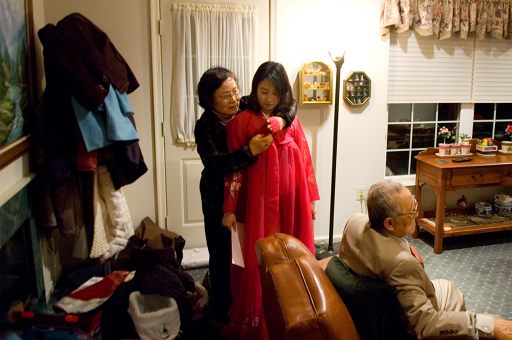
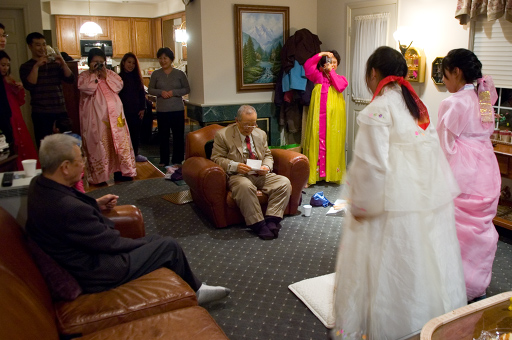
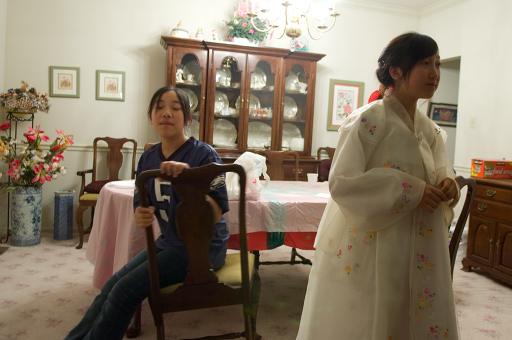
It was 17 years ago on this night that my mother believing my youngest brother’s sickness was incurable shot him and then shot herself. That is the simplest way to tell the story, the facts of which are as stupefyingly shocking today as they were when I first heard them over the phone on January 2nd 1990. Our maid had discovered them.
I was sitting in an office in the Citicorp Building in New York City when I got the phone call. I was four months into my first post college job. It was 10:02 in the morning. There were three calls actually, the first two were the sounds of someone wailing. Not understanding what was going on I hung up twice. When I finally answered I felt as if someone was turning a knob forcing all my senses into an uncomfortably accute range. I could feel the air on my fingers, hear the sound of the wind on the windows, see the minute hand of my watch move second by second. It was as if all the filters allowing me to tune out distractions were ripped from my head. Preternaturally composed, I made flight arrangements to Texas. Then I walked down the hall and told my boss the story and said I would be leaving for a while. My boss followed me down to the street, flagged a taxi, and told me to take as much time off as I needed. I saw him standing there with tears in his eyes as we sped away. A friend and his girlfriend met me at my apartment. We packed in just a few minutes, but the flight wasn't for a few hours. Not knowing what to do we killed time at coffee shop on Lexington and 78th before heading to Laguardia. In the cab we didn’t talk. I kept thinking back a few day to when a black balloon had appeared outside my office window on the 53rd floor lingering there in the air seemingly in defiance of physics. It had floated away horizontally. My mind was turning slow irrational somersaults. "There must have been some horrible mixup," I thought, "none of this makes sense."
I was wearing an old shirt with buttons thinned by wear, and on the flight I remember rubbing the buttons between by thumb and forefinger. The facts were what they were of course and when I arrived home late that afternoon to a houseful of family and friends all in various states of anguish it all hit me like a sledgehammer. I first went to my grandmother kneeling before her and wrapped my arms around her. "I don't understand," she whispered in Spanish, "why?" That night I couldn't sleep and felt the need to write something. The first words that came out were: "I realize with profound clarity that we have choices. The type of life I will live is determined by the choices I make. Starting now."
In the coming days I immersed myself in the bureaucracy of death, getting police reports, ordering official documents, canceling credit cards, arranging the funeral... I remember a funeral director wearing a tieclip in the shape of a shotgun. He said, "Don't worry son, we all have pain in our hearts eventually." This was Texas after all. Having something to do was easier than trying to explain the question everyone kept asking. "Why?" I didn't know why and what I did know—my certainty that this was an act of extreme empathy born of blinding if perverse love—was unmentionable. Too difficult for others to hear or for me to say.
The police report said that my brother died instantly, but that my mother was probably alive for some time, maybe up to an hour before finally bleeding to death. She had missed her heart. That hour haunted me. I had been hit by a car as a 13-year-old and remembered vividly what it was like to lose blood and go into shock. The mind is not turned off in those moments, instead there is a brilliant clarity as in a dream, but the body is immobile and helpless. Was she wracked with regret and doubt, did the terrible folly of it all come crashing down on her? Did she think of us?
When you experience tragedy, someone will inevitably tell you that time will heal you by scarring over your wounds. But time becomes meaningless when you lose the people you love and sometimes you don't want to scar. The rawness of tragedy opens you up as a human being allowing you to feel as never before both the good and the bad.
It was almost two months after all this happened when I finally arrived back in New York on a late flight. My cabdriver was playing a Charlie Parker tape and despite the crisp February air, his window was rolled down so he could take drags from a cigarette. As we drove over the 59th Street Bridge clouds parted revealing the thinnest sliver of a new moon hanging over a glistening city. The vision of the city filled my eyes with tears. "I choose hope," I said to myself, "I'll be ok". Half a lifetime later I can say I was right. The question I sometimes ask myself on January firsts is, "Is it possible to fully enjoy the deep sweetness of life without tasting profound sadness." I don't know the answer but I ask it every year.
related: 1/1 2005
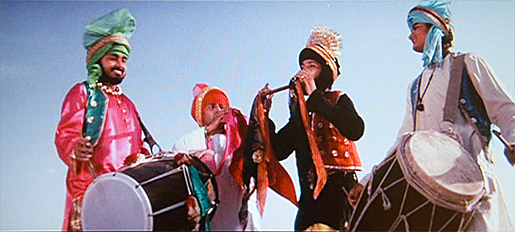
My Korean mother-in-law apropos of nothing:
"You are soooo lucky. Your new baby will be a pig. Not any pig, special red pig, once every 60 year pig! Jenny is cow. I am mice. What year were you born....? 1967? Hmmm. You are sheep. Oh sheep not so good.... but you are lucky to have pig baby soon. I told people in my church and they say you are full of blessing. Some Koreans think pig year is so good thing they have two babies in one year. Really. Pig people get a lot of property, money. Everything. They are sooo lucky."
related: Mrs. Yunnisms
1. Do more serious astronomy.
2. Cut more grass = Buy more records.
3. Build a pulley system in the fort.
4. Develop a network of hiding places.
5. Learn 6502.
6. Run more.
7. Hit some home runs!
8. Study the Aztec and Olmec civilizations.
9. Take black and white pictures of everybody.
10. Write down funny things that happen.
December 31, 1978 10:32PM
related: 10 wishes for2006
I was driving down Flushing Avenue near the Brooklyn Navy Yard tonight when I passed a friend biking down the other side of the street. If you don't know it, the Navy Yard is sort of a semi-abandoned walled off industrial area. It features ruined mansions, the parking lot where police tow cars with too many delinquent tickets, and some sort of sewage treatment plant. Anyway, at night whole area is pretty deserted so I slowed down and shouted over to my friend as he pedaled along at a furious pace. I yelled hello and drove off but he soon caught up to me at a red light. Through the open window I asked after his wife who is pregnant and he said he thought she might give birth tonight or tomorrow... He said he looked at her this morning and was just staggered. We forget what those last days of pregnancy look like. She's due. Overdue probably. He was rushing home and after that brief exchange he zoomed off at full speed not bothering to stop for the lights...
It's a very specific feeling— knowing your wife is on the cusp of giving birth. I used to use the analogy of being in an airport, heading off for a big adventure, but being on hold, waiting for a flight that you know will come, but that keeps being rescheduled or sometimes I would use the analogy of being a kid waiting for Christmas... But these descriptions are thin soup compared to the complexity of the actual emotions. And for the woman the physicality of pregnancy and birth adds dense layers of hard to define feelings to the whole thing. My wife Jenn isn't due until the end of February but already tiny hands, feet, and elbows push out from her belly. That supreme intimacy with another human being can be profound and overwhelming all at once. She's ready to have the baby tomorrow. That's the thing with the second baby. Jenn is ready. Enough already she says.
We dads have it easy. We worry a little. We try to keep things under control. But mainly we ride our bikes in the dark as fast as we can hoping for the best.
related: a post titled circling from before our son was born (note: at that time we thought we were having a girl). It would be another week before he was actually born.
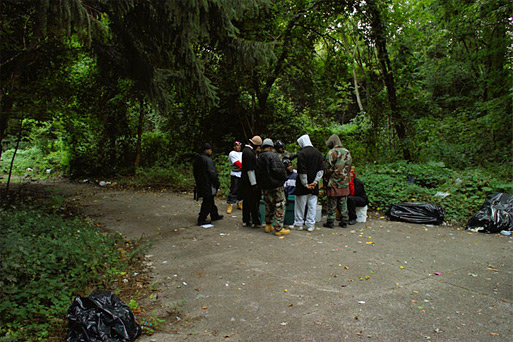
I've been a fan of Dylan Chatain's photography since I saw a few of his prints at the Jen Bekman Gallery last year... He's recently posted more work online from project The American Imagination. When I saw his prints lat year and when I checked his work online, the phrase that kept floating into my head was quietly evocative... but instead of reading a description, why not just look at the pictures...
Pentagram Design, as usual, sent out a memorable holiday card. This year it came in the form of a booklet, "The Alphabet: A Critical Assessment", a printed copy of a Marion Bantjes blog post.
on the upper and lowercase Z: "And last, but certainly not least, the Z, with a final flourish, a sword slash (I know!), a signature of completion. The Z has exhuberance and balance ... alas, with the lower case z, the alphabet goes out with a bang and a whimper."
James Brown: Christmas in Heaven
Posting will be sparse until after the holiday.... I trust you all will pass it well.
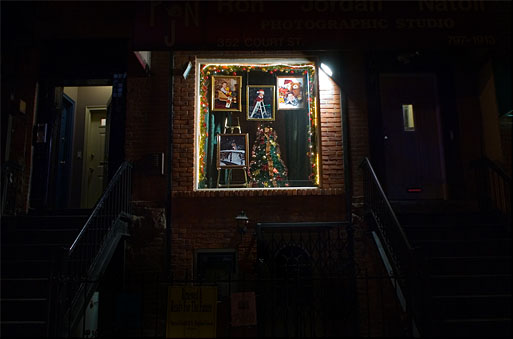
related: same window
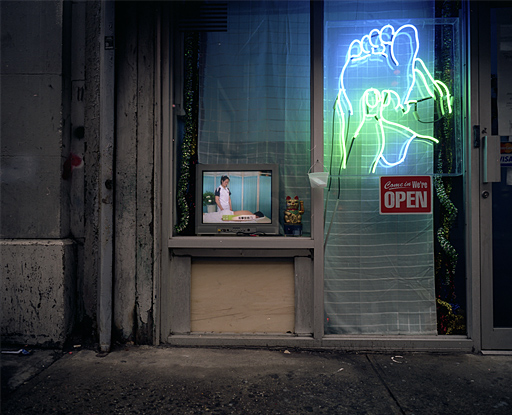
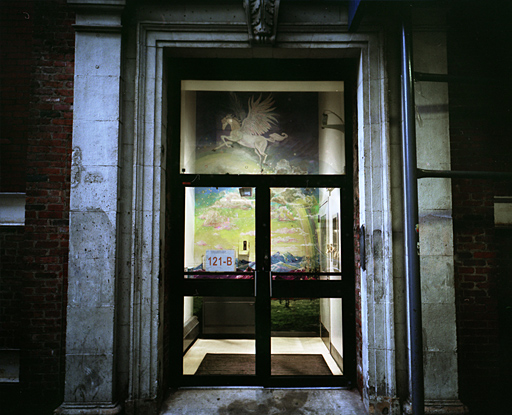
Mexican crime photographer Enrique Metinides' work often leaves viewers unsettled. He is compared to Weegee because of the macabre subject matter and yet Metinides work strikes a darker chord. We look at Weegee's dead mobsters and think they got what they deserved, but when Metinides shoots a kid floating on bottom of a pool the tragedy is palpable...this could be someone you know. Reviewers always compare Metinides photos to film stills maybe because he shoots wide tableaus including bystanders—passersby frozen in a moment of contemplation—this gives the images a larger than life reality that competes with the unreality of the subject matter and distinguishing the images from common tightly composed flash-bulbed newspaper pulp (as an aside it's an effect many art photographers especially those from the Yale school of photographic thought keep trying to replicate). Many of the pictures are hard to look at and yet you are drawn to them. This is not exactly rubbernecking, it's a more primal pull. These are views of death that carry the shade of hard reality. We viewers become bystanders ourselves.
Today the New York Times is featuring a review of a Mentinides show up at Anton Kern Gallery through January.
Andrew Kern
532 West 20th Street
related: another good article on Metinides
Other shows I want to check out this weekend:
Girls Room featuring work from some 30 odd artists...
@ Jen Bekman
6 Spring Street
New Photography 2006
@ MOMA
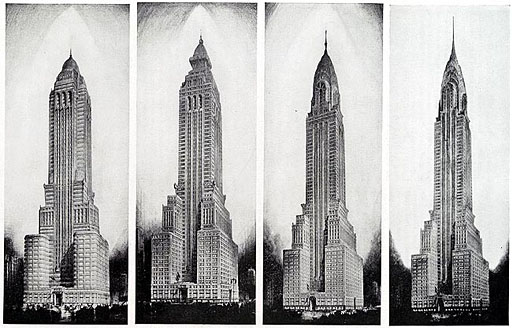
These were a few of the proposals for the Chrysler Building by architect William Van Alen... Apparently the Chrysler board liked the 2nd proposal, but Chrysler himself didn't think it was modern enough, and pushed the architect to do better eventually leading to the final design. The final decision was made by two men: Chrysler the client and Van Alen the architect with no committees or boards to dull the boldness of the design. Architectural critics of the day hated it by the way which tells you a little something about architectural critics.
Every time I see the Chrysler building from afar I literally hear music in my head... sort of an low chord under an angelic "ahhhhhhh....". This happened the first time I saw the building in person at the age of 4 and it happens today. I hope it never goes away.
related: salon on the building's history, Metropolis of Tomorrow, dentist in the Chrysler Building.
In small towns, like the one in which I grew up, you can often go weeks without running into a stranger. You know people's stories and they know yours. You find mystery by picking up on dissonance between the facades people present and the realities underneath... But in big cities virtually everyone you encounter in a day is a stranger. You pick up little snippets of conversation, see bits of urban drama, but you always catch the stories in the middle. And the beginnings and endings are left to the imagination. Why was there a man in a black overcoat and black sunglasses standing alone on the promenade holding a child's pinwheel? What happened to the young couple fighting on Cranberry street? Did he mean it when he said he would change? Change what? Did she believe him or was she going back to her mother's house in Connecticut as she had threatened? Did the young thief being chased down Atlantic Avenue by cops escape with his loot from the pharmacy? And what of the very old man who wanders the neighborhood with a little camera around his neck? What does he do with those pictures he takes so unobtrusively, unnoticed except by other photographers? Does anyone ever get to see them?
related: photographs I did not take today, unphotographable, urban drama

I see this man around the neighborhood several times a week. He always carries a dog eared book in his big hands. I've never seen the same book twice.
When my childless friends ask what it's like to be parent, I often say that it's like being in a boat lost in fog, but then you figure some tiny thing and the fog clears to reveal a full moon over a calm sea.
Tonight was one of those nights.
Our son fell asleep normally, but kept waking up and crying for his mom. After the 3rd or 4th trip downstairs for my very pregnant, very tired wife, I volunteered to take a shift. The minute our son saw me instead of his mom, he started crying inconsolably.
Now if you've never seen a 2 year old cry, especially a kid like ours who is pure sugar, it's like watching all the sadness in the world poured into this little pup of a human being. There is no anger, no reproach, just pure unfiltered sorrow. So I try to hold him and he just turns away, giant tears streaming down his cheeks. "No daddy. Noooo..."
There is one school of parenting that says, offering comfort in these situations is exactly the wrong thing to do, that you need to steel yourself and be hard and that by going cold turkey the child will learn to sleep by himself. We tried that once or twice and our son sobbed so hard he started throwing up. He was a headbanger as an infant until we brought him to our bed. The headbanging stopped immediately. The kid is just a people person.
Anyway he was sobbing, crying for his mom, and I told him if he felt sad to hold my hand. His hand reached out, grabbed my finger and squeezed it hard. I asked him if he felt better, and he nodded. He turned to me and through a stream of alligator tears said, "Up. Up. Momma. Momma." I told him his mother needed to rest and eat dinner which led to more gulping heaving sobs. He turned away again. He was trying to keep it together, but not doing a very good job of it, with cycles of crying and wails. This went on for a long time and I was about to break down and call for Jenn. Then I whispered, "Hey, I'll hold you until your mom comes to bed, however long it takes. You can hold me too." He turned to me, gave me the tightest hug a kid his size can give, rested his forehead against mine, and held my face with both his hands. The tears stopped, he gave me a kiss, closed his eyes, and fell into deep slumber. That was all there was too it. He didn't want to be alone tonight. And who does really?

Sybil Miller put up a nice post yesterday on Helen Levitt's color work along with a links to several images from Levitt's book Slide Show. Slide Show is on my Christmas list in case anyone in my family is reading this.
Gabriel García Márquez on marriage in Love in the Time of Cholera:
"Together they had overcome the daily incomprehension, the instantaneous hatred, the reciprocal nastiness, and fabulous flashes of glory in the conjugal conspiracy. It was time when they both loved each other best, without hurry or excess, when both were most conscious of and grateful for their incredible victories over adversity. Life would still present them with other moral trials, of course, but that no longer mattered: they were on the other shore."
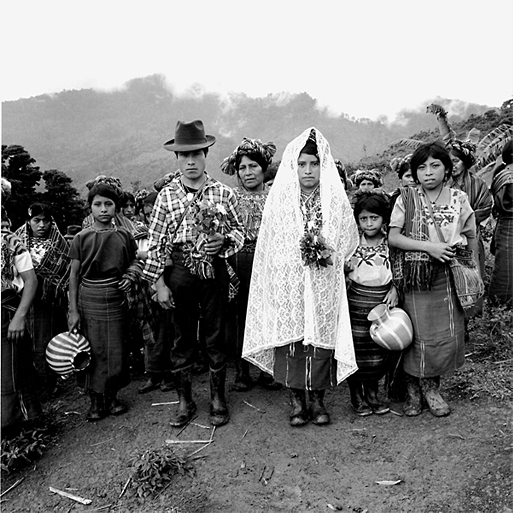
Jonathan Moller spent ten years in Guatemala photographing rural Mayan communities at war with the government. The stories he tells are tragic, heartbreaking, and beautiful. A monograph of this body of work is titled Our Culture is Our Resistance. (Note the images on Moller's personal website are presented with lots of compression. Slightly better quality images are viewable, although without context, here.)
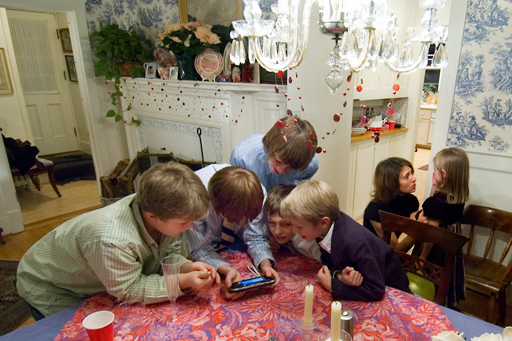
I don't remember many of the details of funerals of my childhood, but I do remember hanging out with all my cousins, playing cards, and chasing each other through house. We kids might might cry upon seeing the dead, or afterwards at night, but the sheer exuberance of youth would not allow us to remain sad when so many cousins were around. It was that way this weekend at the funeral of the father of a friend, a respected 70 year old doctor killed in an instant by a drunk 20 year old driver. The brother of the doctor said this, "As I get older I realize more and more that the constant in these family gatherings, the thing that cements them in memory, is sound of of the kids voices and the rumble of their feet tearing through house. I look around this room and I can see almost everyone here as one of those kids. I remember when my brother and I were those kids... it doesn't seem that long ago."
« Previous 15 Posts
« Previous Post (My 4 Year Old On What Makes a Good Shoe)
2019
:
Jan
.
2016
:
Mar
.
2015
:
Dec
.
2014
:
Oct
.
2013
:
May
.
Apr
.
Mar
.
2012
:
Oct
.
Sep
.
Aug
.
Jul
.
Jun
.
May
.
Mar
.
Feb
.
Jan
.
2011
:
Dec
.
Nov
.
Oct
.
Sep
.
Aug
.
Jul
.
Jun
.
May
.
Apr
.
Mar
.
Feb
.
Jan
.
2010
:
Dec
.
Nov
.
Oct
.
Sep
.
Aug
.
Jul
.
Jun
.
May
.
Apr
.
Mar
.
Feb
.
Jan
.
2009
:
Dec
.
Nov
.
Oct
.
Sep
.
Aug
.
Jul
.
Jun
.
May
.
Apr
.
Mar
.
Feb
.
Jan
.
2008
:
Dec
.
Nov
.
Oct
.
Sep
.
Aug
.
Jul
.
Jun
.
May
.
Apr
.
Mar
.
Feb
.
Jan
.
2007
:
Dec
.
Nov
.
Oct
.
Sep
.
Aug
.
Jul
.
Jun
.
May
.
Apr
.
Mar
.
Feb
.
Jan
.
2006
:
Dec
.
Nov
.
Oct
.
Sep
.
Aug
.
Jul
.
Jun
.
May
.
Apr
.
Mar
.
Feb
.
Jan
.
2005
:
Dec
.
Nov
.
Oct
.
Sep
.
Aug
.
Jul
.
Jun
.
May
.
Apr
.
Mar
.
Feb
.
Jan
.
2004
:
Dec
.
Nov
.
Oct
.
Sep
.
Aug
.
Jul
.
Mar
.
2003
:
Apr
.
1999
:
May
.



















